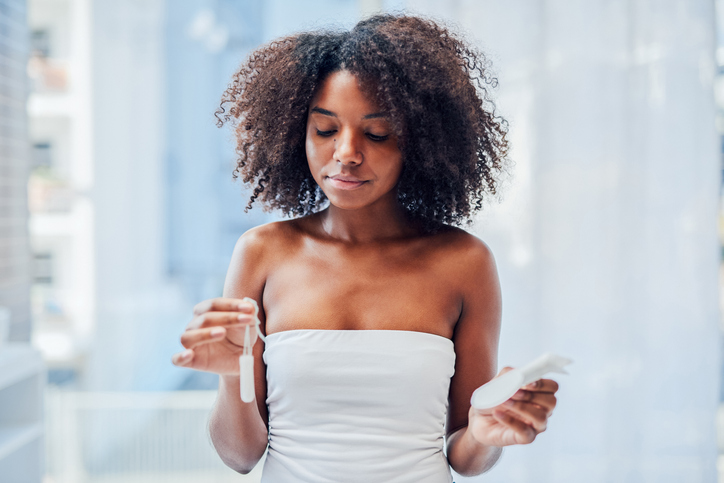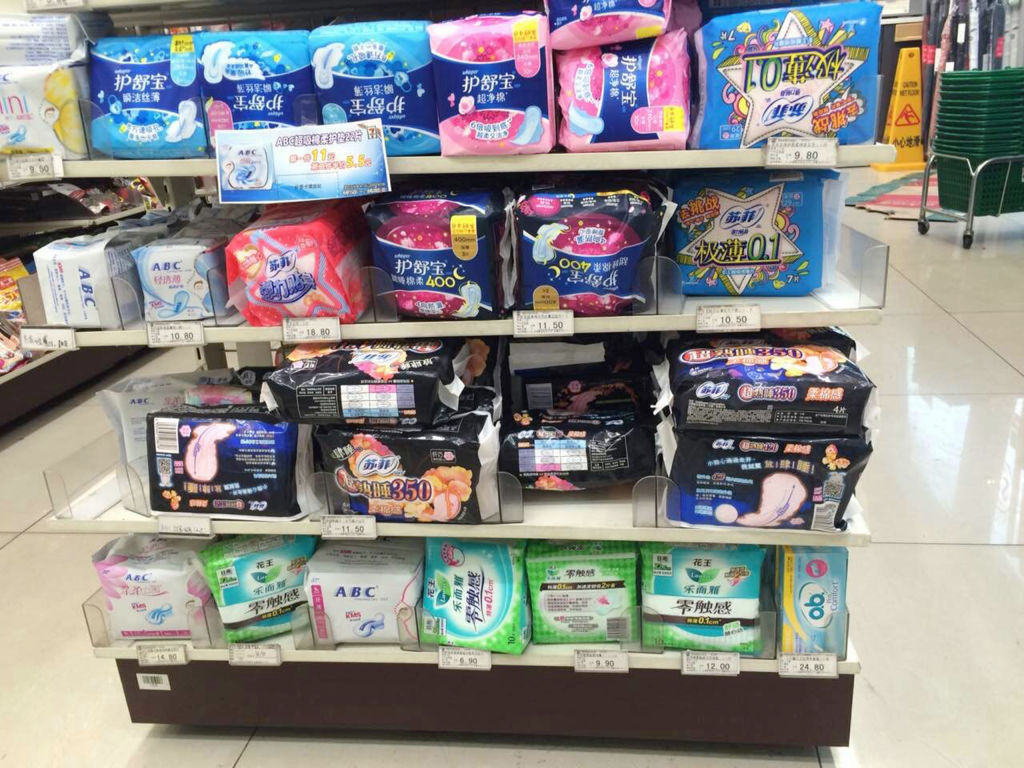
Source: Moyo Studio / Getty
Period poverty describes the struggle to afford menstrual products. Black women face this type of poverty more than other racial groups, for reasons that span from practical to psychological and so battling the issue will also require a multi-faceted approach.
Period products are getting more expensive and Black menstruators are being impacted the most. SWNS Digital reported that the average woman spends $6,350 on period products during her lifetime. There are two problems with that stat: first, it was calculated before the recent bout of inflation and second, many Black women don’t have “average” periods.
The National Library of Medicine states that Black women are more likely to have heavy bleeding – often due to stress – than white women. Heavier periods mean the need to swap out tampons, pads, menstrual cups and similar products more frequently, and that costs more money. However, NielsenIQ shows that the average cost of tampons went up 9.8 percent in 2022, and the average cost of pads went up 8.3 percent. That inflation strikes those who need a surplus of products – including heavy bleeders – the hardest.

Source: South China Morning Post / Getty
When women cannot afford proper menstrual products, they are more likely to turn to risky alternatives. A report done by Reuters Health found that low-income women who can’t afford tampons and pads resort to using paper towels, rags, toilet paper and similar items. However, the University of Michigan’s School of Public Health states that such products increase the risk of infection. With Black women often not having adequate or any health coverage, that infection could mean the “cure” was worse than the problem.
When some women do not report the severity of their periods, there is a psychological component at play, as well. OB/GYN Charis Chambers, MD (aka The Period Doctor) explained to Well and Good that some Black girls are conditioned to underreport discomfort or struggles. The doctor ties this into the prevalence of fibroids among Black women, and the historically inadequate attention and treatment they’ve received for the condition. “Maybe the idea has been that periods are just tough, that they’re something to be endured rather than treated and diagnosed,” stated Dr. Chambers.
Fighting period poverty means better access to products and education
So, how is the Black community supposed to fight period poverty? There are a number of caring and passionate advocates who are moving the needle both in terms of access to education and practical resources.
MADAMENOIRE interviewed Amber Wynn in 2022, who re-modeled the Emergency Reproductive Health Hotline at Hampton University to include free menstrual products and is educating high schoolers on how to implement similar systems in their schools. MADAMENOIRE also did a write-up on Flaviana Matata, a Tanzanian model whose personal care products company Lavvy provides educational resources to people who menstruate, and Sabrina Browne, who partnered with The Flow Initiative to get over 2,000 free menstrual products to those in need.
But, as Dr. Chambers stated, in order to get help, menstruators need to be ready to ask for it. That’s why women like Shanicia Boswell of Black Moms Blog started her popular period parties, yearly events where the mother invites experts to speak on period health and change the way women think and talk about their bodies and their cycles.
Activists like these are getting the real products menstruators need to them, at no or low cost, as well as shifting the conversation around menstruation to empower girls and women to open up about their period needs. They are showing the power of making change at a local level and facilitating conversations with policymakers and educators.









